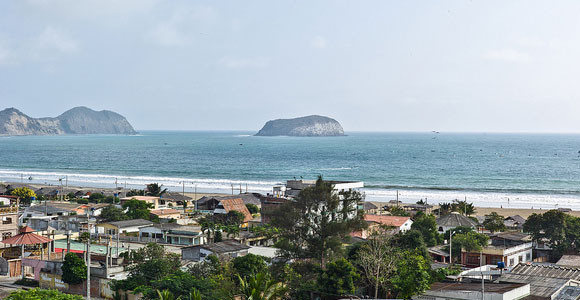Unless you are running a business in Ecuador, your tax liability as a foreign resident is very low. If you live in Ecuador but obtain your income from overseas sources, there is no reporting requirement. The practice of monitoring and taxing banking transactions in Ecuador has been abolished.
Income Tax in Ecuador
Foreign residents of Ecuador are taxed on their Ecuadorian-sourced income but not on income earned outside of the country. Income taxes are charged at progressive rates, ranging from 5% to 35%. As of 2019, the first $11,310 of an individual’s income is not taxed.
Sales Tax
Most of Ecuador’s tax revenue is generated by the IVA, which translates in English as value added tax (VAT). The rate for this tax is currently 12%, and it is added to most purchases. However, if you are 65 or older you can file to be re-imbursed for up to $92.64 per month.
Beware of merchants who try to add the tax after a price has been agreed upon. If it’s a store policy that the price does not include the IVA, which is rare, there should be a sign posted to that effect. The same goes for restaurant prices—there should be a note on the menu advising you that the tax will be added to your total.
Property Tax in Ecuador
Residential property taxes are based on a percentage of the municipal value of the property, and city and rural properties are taxed at different rates. Even on large properties it is unusual to pay more than $200 a year in property tax. Homeowners over the age of 65 are excluded from paying taxes for properties valued less than $183,000. For married couples, if only one is 65 or over the tax bill is reduced 50%.
Capital Gains Tax
The capital gains tax is based on the change in the municipal value between the time you bought the property and when you sell it. Technically, the percentage is 10% of the difference between the municipal value at the time of purchase and at the time of sale. There may be discounts on this fee, based on the amount of time between purchase and sale of the property. A discount is also applied for any improvements to the property, including the addition of furniture, appliances, etc. A short time span between purchase and sale will result in a higher capital gains tax.
Business Taxes
If you have an Ecuadorian business, you’ll need an RUC number from the Ecuadorian IRS that serves as your tax identification number. Your RUC will then be used to track your purchases from suppliers and your sales to customers so that the IRS can verify the IVA is being handled appropriately by all parties.
While the tax laws aren’t particularly complicated, the administrative process can be a nightmare, and it will be well worth the small cost to hire a local accountant to manage your business records. The penalty for not having your records up to date, or for not collecting the appropriate tax, is a seven-day closure of your business for the first offense.

